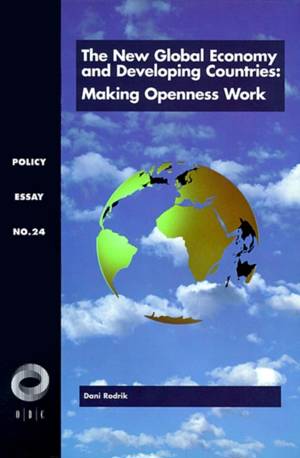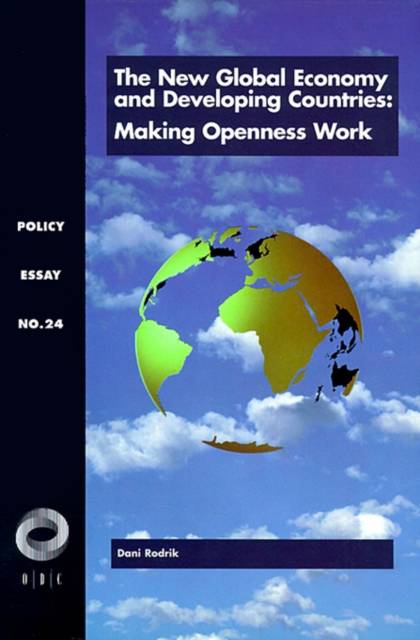
- Retrait gratuit dans votre magasin Club
- 7.000.000 titres dans notre catalogue
- Payer en toute sécurité
- Toujours un magasin près de chez vous
- Retrait gratuit dans votre magasin Club
- 7.000.0000 titres dans notre catalogue
- Payer en toute sécurité
- Toujours un magasin près de chez vous
Description
The new book that's sparked discussion both in Washington and European financial capitals
Policy makers in the developing world are grappling with new dilemmas created by openness to trade and capital flows. What role, if any, remains for the state in promoting industrialization? Does openness worsen inequality, and if so, what can be done about it? What is the best way to handle turbulence from the world economy, especially the fickleness of international capital flows?
In The New Global Economy and Developing Countries Dani Rodrik argues that successful integration into the world economy requires a complementary set of policies and institutions at home. Policy makers must reinforce their external strategy of liberalization with an internal strategy that gives the state substantial responsibility in building physical and human capital and mediating social conflicts.
Spécifications
Parties prenantes
- Auteur(s) :
- Editeur:
Contenu
- Nombre de pages :
- 180
- Langue:
- Anglais
- Collection :
- Tome:
- n° 24
Caractéristiques
- EAN:
- 9781565170278
- Date de parution :
- 15-02-99
- Format:
- Livre broché
- Format numérique:
- Trade paperback (VS)
- Dimensions :
- 154 mm x 234 mm
- Poids :
- 276 g

Les avis
Nous publions uniquement les avis qui respectent les conditions requises. Consultez nos conditions pour les avis.






